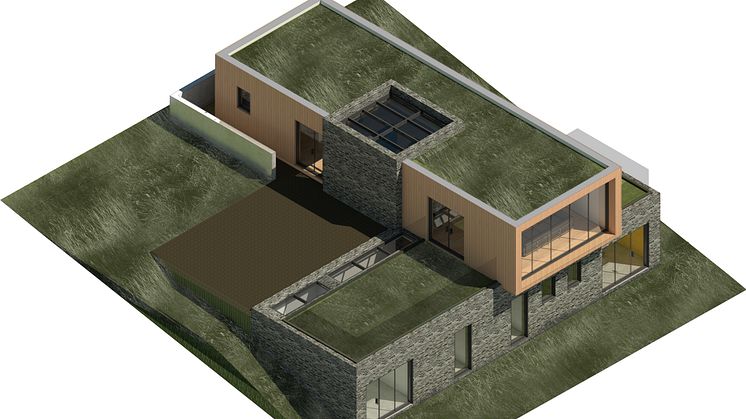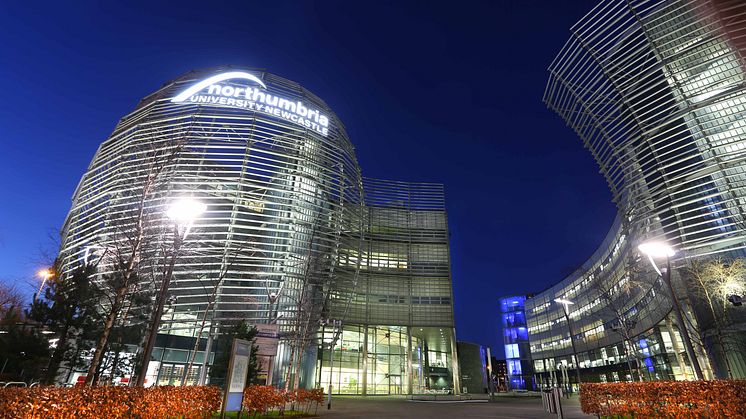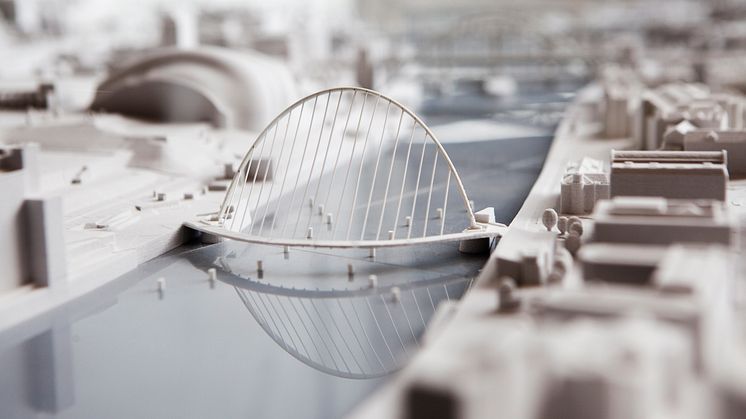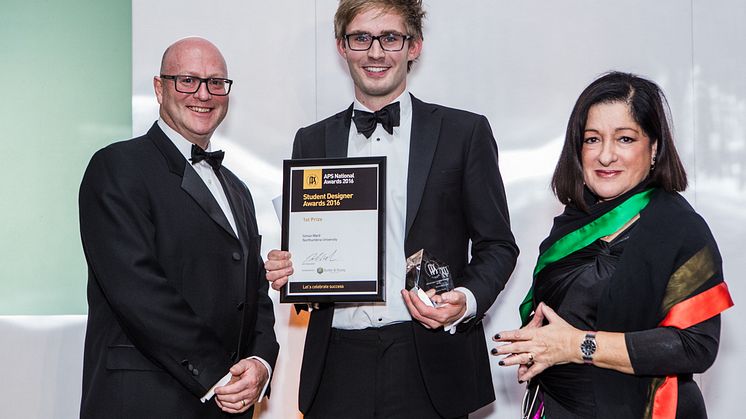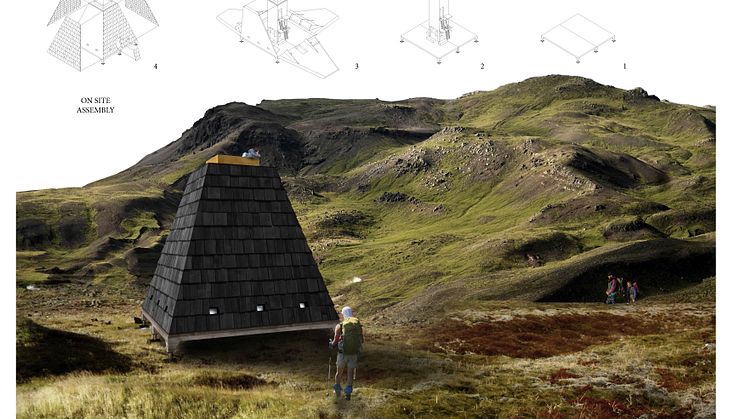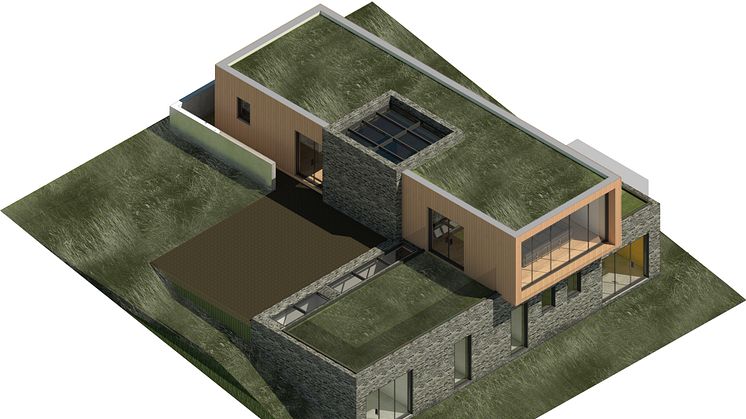
Press release -
Northumbria students see designs come to life
A Northumbria architecture graduate has collaborated with staff and students at the University to develop homes on a North East site believed to be too challenging to build on.
Northumbria graduate Richard Marsden teamed up with Professor Paul Jones and a group of six MArch (Master of Architecture) students to design eight bespoke properties, giving the students valuable real-life experience and allowing Richard to benefit from the expertise of academics from Northumbria’s respected department of Architecture and Built Environment.
The four-acre site, in Humbledon Hill, Sunderland, presented a number of design challenges and restrictions, with an ancient Bronze Age hillfort, designated as a scheduled monument in 2011, situated within the plot.
By working closely with English Heritage and Natural England, and by combining the students’ creativity with Professor Jones’ knowledge and experience and Richard’s entrepreneurial flair, the team proposed a development of eight homes, sensitively designed to reflect the historic and environmental significance of the site.
Richard, who is a Director at Building Design North Ltd (BDN), said: “This is a really unique site and so required a unique approach when it came to the development. While I was studying at Northumbria I was lucky enough to work on real-life design projects and so know how beneficial they can be and I wanted to give other students the same opportunity. I also wanted this development to push the design boundaries and felt that the creativity and flair the students could provide would be of huge benefit to the project.”
Each of the students involved in the project was asked to design a four-bedroom executive eco home. The properties all have an energy efficiency and environmental impact A rating, the highest available, and include features such as locally sourced larch cladding, context-specific green roofs and solar panels.
Environmental and historical sensitivities were at the heart of the design process, with most of the homes built into the lower stretches of the hill, tucked behind an existing line of trees. This will ensure the scheduled monument at the top of the hill is preserved as an open space, with meadow species planted to preserve any archaeology for future reference.
Sustainability has also been considered at all stages of the development, for example, the stone removed during the initial hillside cutting stage of the development will be reused to create the roads and driveways on the site.
Paul Jones,Professor of Architecture of Northumbria University, said: “As a university we recognise the value of working closely with industry to offer our students real-life experience to complement and enhance their academic activity.
“Being involved in this project was a fantastic experience – it was an extremely challenging site but also presented real opportunities in terms of innovation and modern design techniques.
“As an architect Rick could have designed the houses himself, but recognised the potential value to the students who were given the opportunity to produce a high quality eco-house design, and for those whose schemes were chosen, they are now seeing their work realised.
“At Northumbria we aim to foster a collaborative community of students, staff and graduates and this project is an excellent example of this.”
Work to prepare the site for development started in February this year, with the first home due to be completed by the end of 2017 and the whole development finished by the end of 2018.
For more information about Northumbria department of Architecture and Built Environment visit https://www.northumbria.ac.uk/about-us/academic-departments/architecture-and-built-environment/
Topics
Northumbria is a research-rich, business-focused, professional university with a global reputation for academic excellence. To find out more about our courses go to www.northumbria.ac.uk
If you have a media enquiry please contact our Media and Communications team at media.communications@northumbria.ac.uk or call 0191 227 4571.







